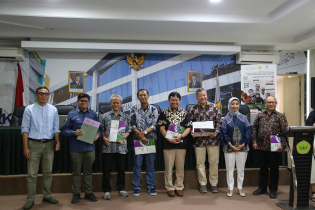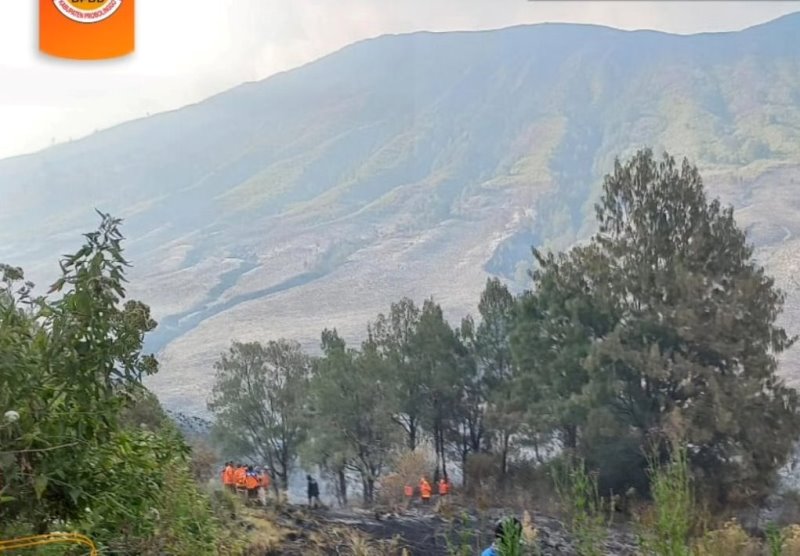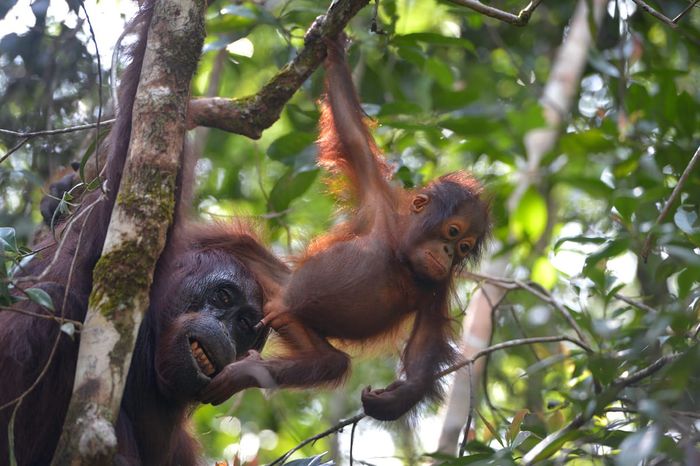Belantara Learning Series Eps. 5 “Penanganan Perdagangan Satwa Liar: Pembelajaran dari Asia Tenggara”
Belantara Foundation kembali menyelenggarakan Belantara Learning Series (BLS) Eps. 5 dengan tema “Penanganan Perdagangan Satwa Liar: Pembelajaran dari Asia Tenggara” via aplikasi zoom pada Kamis (27/10). Acara ini merupakan program peningkatan kapasitas yang diinisiasi oleh Belantara Foundation sejak akhir tahun 2021. BLS kali ini, Belantara Foundation berkolaborasi dengan Prodi Manajemen Lingkungan Sekolah Pascasarjana Universitas Pakuan, LPPM Universitas Pakuan, SCENTS, Fakultas Biologi Universitas Nasional, LPPM Universitas Nasional, Jurusan Biologi FMIPA Universitas Riau, Jurusan Biologi FMIPA Universitas Andalas dan Jurusan Biologi FMIPA Universitas Indonesia.
Direktur Eksekutif Belantara Foundation Dr. Dolly Priatna mengatakan bahwa konsep BLS kali ini berbeda dengan sebelumnya. Selain diselenggarakan secara online, kali ini juga diadakan nonton bareng secara luring di 5 Universitas. Lima universitas tersebut yaitu Universitas Indonesia, Universitas Andalas, Universitas Riau, Universitas Nasional dan Universitas Pakuan dan dihadiri oleh mahasiswa, dosen, dan civitas akademika universitas.
“Kami berharap melalui nonton bareng secara luring ini, para peserta yang umumnya mahasiswa bisa lebih termotivasi sehingga akan muncul inspirasi yang inovatif yang dapat berkontribusi nyata untuk penanganan perdagangan satwa liar yang lebih efektif. Saat nonton bareng, para peserta juga bisa lebih interaktif serta membuka ruang diskusi bersama secara lebih dalam dibandingkan dengan menjadi peserta daring”, kata Dolly.
Perdagangan satwa liar secara ilegal merupakan salah satu ancaman terhadap pelestarian keanekaragaman hayati. Dampak yang ditimbulkan dari kegiatan perdagangan satwa liar ini adalah terjadinya kelangkaan, kepunahan spesies dan ketidakseimbangan ekosistem di habitat aslinya.
Direktur Jenderal Penegakan Hukum Lingkungan dan Kehutanan KLHK Rasio Ridho Sani menyatakan bahwa satwa liar yang dilindungi merupakan kekayaan bangsa Indonesia yang berperan penting untuk menjaga keutuhan ekosistem Indonesia. Perburuan dan perdagangan ilegal satwa yang dilindungi harus dihentikan karena merugikan negara dan masyarakat. Ini merupakan kejahatan yang serius dan terorganisir. Pelaku kejahatan perburuan dan perdagangan satwa liar harus dihukum seberat-beratnya, agar ada efek jera.
“Kami sangat serius dan mempunyai komitmen untuk menindak pelaku kejahatan perburuan dan perdagangan satwa liar. Untuk melawan kejahatan terorganisir ini harus dilakukan bersama-sama, kami tidak bisa sendirian, perlu keterlibatan masyarakat, CSO, dan akademisi”, tegas Rasio Sani.
Lebih dari itu, perdagangan satwa liar juga membawa ancaman yang berbahaya dari segi kesehatan, yaitu terjadinya penyebaran dan penularan penyakit zoonosis ke berbagai belahan dunia. Satwa liar yang dipindahkan dari habitat alaminya ke lingkungan kita, berpotensi besar membawa dan menularkan penyakit yang sebelumnya tidak terjangkau.
Jumlah perdagangan satwa liar ilegal secara global telah mengalami peningkatan dalam beberapa tahun terakhir, terutama setelah pandemi Covid-19 yang diiringi dengan meningkatnya jaringan online aktivitas ilegal ini. Saat ini, perdagangan satwa liar ilegal ini tidak hanya mengancam spesies kharismatik seperti harimau dan gajah, tetapi juga mengancam berbagai spesies seperti ikan, reptil, unggas dan
yang lainnya.
Pada tahun 2014 hingga 2018, terdapat lonjakan kasus peningkatan penyitaan trenggiling hingga 10 kali lipat. Berdasarkan data World Wildlife Seizures milik United Nations Office on Drugs and Crime, tercatat sebanyak 180.000 penyitaan satwa liar di 149 negara dan wilayah. Selain itu, ditemukan fakta sebanyak 6.000 spesies telah diselundupkan antara tahun 1999-2019 yang terdiri dari mamalia, reptil, terumbu karang, burung dan ikan.
Rektor Universitas Pakuan Didik Notosudjono mengungkapkan bahwa insan perguruan tinggi dapat memainkan peran yang strategis dalam penanganan perdagangan satwa liar. Selain kegiatan-kegiatan awareness kepada masyarakat melalui program KKN, PKM, dan MBKM, para dosen dan mahasiswa juga dapat melakukan riset-riset pengembangan metode monitoring dengan memanfaatkan teknologi, yang dapat membantu penanganan kejahatan terhadap tumbuhan dan satwa dilindungi menjadi lebih efektif. “Melalui upaya tersebut, harapannya akan muncul kesadaran masyarakat untuk mencintai, menjaga serta melestarikan satwa liar dan habitatnya”, tutup Didik.
Pada kesempatan yang sama, Founder SCENTS Dwi Nugroho Adhiasto mengemukakan bahwa tiga pilar untuk mencegah perdagangan satwa liar adalah deteksi, pencegahan, dan efek jera. “Untuk melakukan ketiga pilar tersebut, banyak kegiatan atau inovasi yang bisa dilakukan bersama”, pungkas Dwi.
Salah satu upaya yang dapat menurunkan laju perdagangan satwa liar adalah terjalinnya komunikasi dan juga kerja sama antar negara. Peningkatan kerja sama secara internasional akan sangat membantu proses penyelidikan secara menyeluruh dengan melintasi batas-batas negara/wilayah. United Nations Convention against Transnational Organized Crime (UNTOC) telah mendorong berbagai negara di dunia untuk mengkategorikan perdagangan satwa liar ini di negaranya masing-masing.
Pemerintah Indonesia sendiri telah melakukan kesepakatan global untuk mengatur dan melarang perdagangan internasional terhadap spesies yang terancam melalui ratifikasi Convention on International Trade in Endangered Species of Wild Fauna and Flora (CITES) yang tertuang dalam Keputusan Presiden Nomor 43 Tahun 1978.
Turut hadir sebagai narasumber yang ahli pada bidangnya yaitu Debbie Banks, Head of Environmental Investigation Agency, (Inggris); Jenny Machau, Executive at Enforcement & Protection Division Sarawak Forestry Corporation (Malaysia) dan Jessica Lee, Head of Avian Species Programmes and Partnership Mandai Nature Singapore.
Acara ini dapat diakses kembali melalui YouTube channel Belantara: https://www.youtube.com/watch?v=p_XS-ZnZVDo













